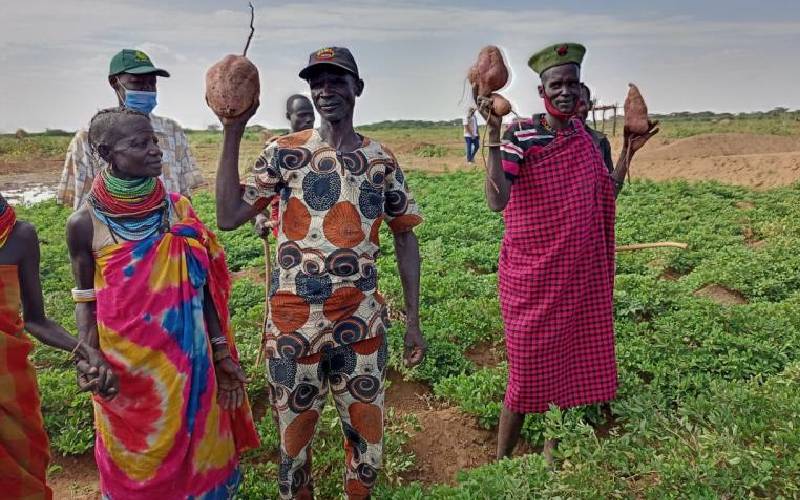
Is it not attainable for Kenya to turn out to be world’s breadbasket? That can only take place if we commence developing surplus foods. At this time, we are generating significantly less than what we will need, then market off to buy farm inputs. In 2019, Kenya imported maize well worth Sh4.2 billion from Tanzania.
In 2020, we faced but a further maize deficit and imported roughly 277,350 tones (3.1 million 90kg luggage), largely from Uganda and Tanzania. This year, the deficit is so steep that Kenya will be pressured to import further than the East African neighborhood. Of training course, there is an ungodly narrative driving these importations.
A deliberate food items creation revolution is what Kenya desires to feed her persons, promote surplus meals and turbo-cost the overall economy. Denmark, with a population of 5.5 million people today generates meals for 100 million persons! They are world’s variety one particular in meals marketplace innovation. The genesis of this revolution is in our mindsets.
Generally, we need to transfer absent from micro-creation to macro-production. Smallholder farming in its present point out are unable to supply surplus meals and sustainable profits. We may well not do absent with modest farms but we can do absent with smallholder farming mentality and tactics. This method has worked properly in Nigeria for a tomato agribusiness.
Tomato Jos agro-processing enterprise focuses on area creation of large-high quality tomato paste for the Nigerian sector. Right before building a manufacturing unit for tomato paste output, the corporation planted higher good quality tomatoes. They integrated smallholder farmers into planting superior high quality tomatoes. They recognized a manufacturing unit for processing the tomatoes into tomato paste. As a result of this product, smallholder tomato farmers were built-in into a big-scale tomato ecosystem.
If it can come about in Nigeria, it can come about right here. One of our 47 counties can grow to be a tomato superpower. That county can then enact conducive tomato expenditure guidelines and set in area a responsible infrastructure. These kinds of motion will appeal to traders who will set up planet-course tomato processing factories like Tomato Jos.
Each county can specialise on a person or two agricultural items, align their budgets to produce and turn out to be the most effective. Japan took this solution and inevitably reaped handsome dividends. In 1979, the late Dr Morihiko Hiramatsu was Governor of Ōita Prefecture, Japan’s equal of a county. He rolled out the ‘One Village 1 Product’ (OVOP) initiative. A village would choose a item exceptional to its region and target exclusively on it.
Our 47 counties can abide by this product to detach its citizenry from poverty. For 53 years, I have witnessed my possess lovely mom Deborah Kalua farm numerous crops and keep domestic animals. But she has in no way created cash. Just like millions of Kenyans really don’t we owe her a sustainable tactic to her agricultural adventure?
Brazil’s foods processing sector is worth at the very least Sh21 trillion. The sector supports about 36,100 companies, typically SMEs. In the US, the food items sector is accountable for 22.2 million employment.
Are we not section of this world wide room wherever we can strategically replicate these foodstuff generation procedures? As we match into the August elections, just can’t we elect palms-on leaders and political events who understand the result of weather transform and captain an agricultural revolution? Think green, act environmentally friendly.
The writer is Inexperienced Africa Basis founder. www.kaluagreen.com
Brace for a huge change in county leadership
This year’s elections bear telltale indicators of a revolution, albeit delicate. A situation in point is the change of affiliation in what were hitherto protected voting blocs for ethnic chieftains.







